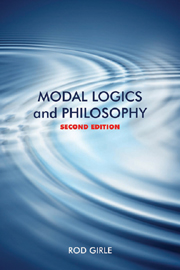13 - Deontic logic
from Part 2 - Applications
Summary
Introduction
If we interpret the ☐ as “It is obligatory to bring it about that”, then we have a deontic interpretation of modal logic. The ◊ is then interpreted as “It is permissable to bring it about that”.
Some deontic logicians have insisted that the deontic modal operators operate not on propositions but on acts. In that case the translation of the ☐ is “It is obligatory to do”, and the ◊ is translated as “It is permissable to do”. This means that the p and q of standard logic become the names of acts, not the descriptions of states of affairs. We shall try to present the deontic interpretation in such a way as to be neutral about the act versus proposition approaches. In what follows we shall assume that the alternative to “is true” of “is done” can be used instead of “is true”, and so on. In the next paragraph only we shall insert the alternatives. After that we use the states of affairs locutions.
Just as ◊p generates a world in which p is true (or is done), a permission to bring it about that p generates a world in which p is true (or is done), and all the truths (or actions) that it is obligatory to bring about (or do) are true (or are done). In deontic logic, the accessible worlds, the worlds we see into, are the worlds in which at least one permitted state of affairs (or action) occurs, and all obligations are fulfilled.
- Type
- Chapter
- Information
- Modal Logics and Philosophy , pp. 200 - 206Publisher: Acumen PublishingPrint publication year: 2009



